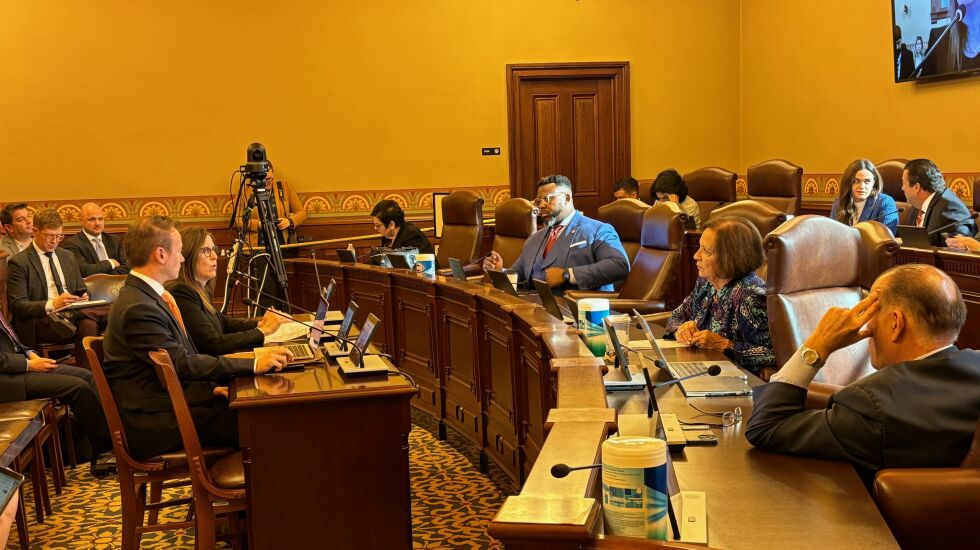
SPRINGFIELD — A plan for Chicago’s newly elected school board has reached a stalemate in the waning days of the veto session.
And with the clock ticking, it appears a private school scholarship tax credit program will sunset by the end of the year, despite strong pressure from Republican lawmakers and activists surrounding the Illinois State Capitol this week.
While the Illinois House on Wednesday approved a measure that would allow for the election of 10 board members and the appointment of 10 others by Mayor Brandon Johnson in 2024, Illinois Senate President Don Harmon said the plan includes “woefully inadequate ethical provisions” and said he would not support it.
Harmon, D-Oak Park, on Tuesday filed a competing amendment that would allow the board to be fully elected as soon as next year by splitting up memberships to two- and four-year terms.
“We are concerned with the failure to include strong ethical safeguards in the legislation the House approved,” Harmon said in a statement released after the Senate adjourned.
Harmon wrote that there is no prohibition on executives and employees of school district contractors and vendors being able to serve on the board. He also stated that those who offered testimony during several Senate hearings about the elected school board stressed the importance of electing all 20 board members next year, which anchors his proposal.
“We are eager to work with the House on the shared goal of an elected representative school board but we will not accept watered down ethical provisions, and we believe the parents, families, students and taxpayers of Chicago deserve immediate representation,” Harmon wrote.
Despite the strong criticism, Harmon said he is “continuing discussions with our colleagues in the House to swiftly reach an agreement.”
During a House Executive Committee earlier Wednesday, however, Rep. Ann Williams, a Chicago Democrat who sponsored the House version approved Wednesday, said that those who have contracts with CPS would not be allowed to serve on the board. She also stressed that CPS employees would not be able to serve.
“We prohibit individuals with a contract or some ownership interest in a company with a contract with the school board,” Williams said.
Members of unions would be allowed to run, she said. That would include members of the Chicago Teachers Union, although they would need to step down from their CPS jobs if they were elected, like any other employee of the district.
“It’s a separate entity so I don’t see why that would apply, nor would membership in any other union,” Williams said.
There are also no requirements in the measure about campaign financial disclosure pertaining to the elections, a concern brought up at the House Executive Committee.
Williams on Wednesday night said in a text that the House and Senate are both working toward the same goal, but added that Harmon’s concerns were not brought to House Democrats’ attention.
The CTU, which has always supported a fully elected board, prefers Williams’ plan, in part because it would give the union more time to choose candidates and raise campaign funds. The union would only have to find 10 candidates, as opposed to 20, under the House Democrats’ plan. And the union’s political action committee will have to play catch-up after contributing a hefty $2.46 million to Johnson’s mayoral campaign.
The final day scheduled for the fall veto session is Thursday.







